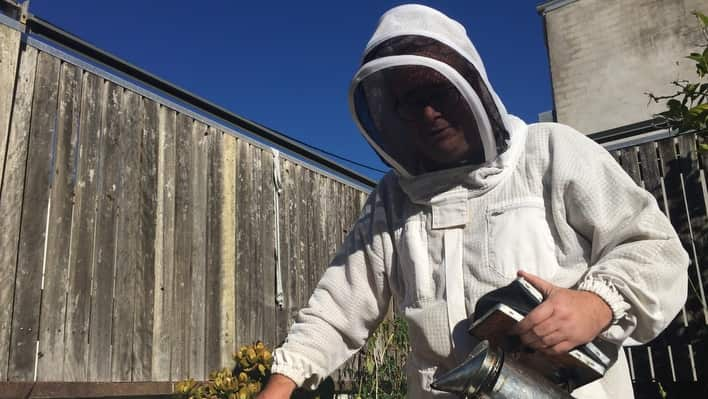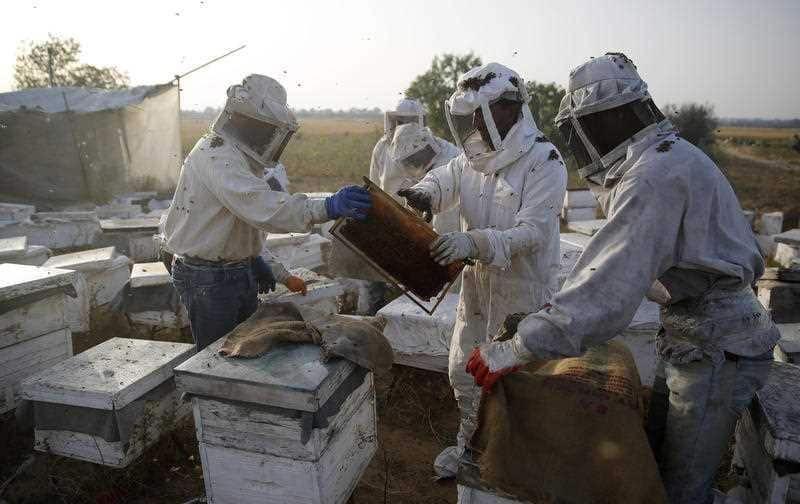A bee's ability to pollinate is vital for flowers as well as the crops we eat - but that's compromised when a bee comes into contact with the pesticide neonicotinoid.
Scientists from the Imperial College in London have reported that bees exposed to the chemical are only able to fly a third of the distance they usually can, and stay in the air for far less time compared to unexposed bees.
"So that's quite a drastic decrease in foraging, or flight endurance. And that may then mean that when foragers go out they either can't reach resources that they previously could or when they go out and feed on a flower that is contaminated they then can't make it back to the colony," Ecology PhD student Daniel Kenna, who helped author the report, told SBS News.

Doug Purdie has worked in the beekeeping industry for 12 years and seen first-hand the deadly impact of the pesticide. Source: SBS News
Mr Kenna said they also found exposed bees tend to exhibit a short burst of energy at the start of their flight, before quickly wearing themselves out.
"So that neonicotinoids binding is causing that sort of rush, it stimulates neurons so it's providing that rush of activity and that potentially then leads to them not being able to fly as far, reducing their endurance," he said.
Neonicotinoid is a class of pesticides which is absorbed by the plant rather than coating its surface and the chemicals spread to all parts of the plant, and are exposed to bees through pollen.
Neonicotinoid is banned in the EU because of the harm it can do to bees, but in Australia it's still widely used and readily available.
The Australian Pesticides and Veterinary Medicines Authority said the chemical is safe and effective and there's no evidence it's destroying bee populations here.
But beekeepers such as Doug Purdie believe that should change.

Beekeepers lift honeycombs from a beehive after using smoke to calm the bees, during the honey harvest. Source: AAP
"The thing with neonicotinoids is that they appear in many different chemicals and many different things from the thing that you put on your pet for fleas to stuff you use in your garden so maybe there should be a restriction on how you use it in your garden," he said.
But some biologists like Sasha Mikheyev, from the Australian National University, believe it's too early to make that call.
"I think it's really important to conduct studies on Australian bees and Australian populations because you know anything that happens in Europe may or may not be applicable to our bees here," she said.
Share

